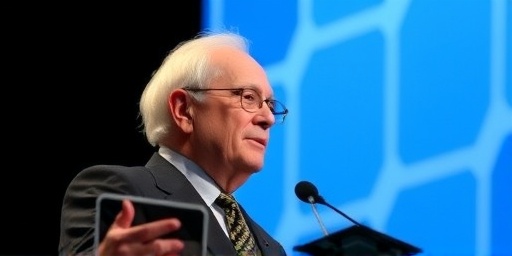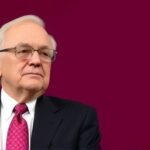In a resounding display of resilience, Berkshire Hathaway has announced a 34% surge in its third-quarter operating profit, underscoring Warren Buffett’s enduring investment prowess amid a broader market rebound. The conglomerate’s earnings report, released on Friday, revealed operating earnings of $10.8 billion for Q3, up sharply from $8.1 billion in the same period last year. This robust performance marks a pivotal moment for the company, as it navigates post-pandemic economic shifts and renewed investor confidence.
Warren Buffett, the 93-year-old Oracle of Omaha, has long been synonymous with value investing, and this quarter’s results highlight how his diversified portfolio—from insurance giants to railroads and consumer brands—has weathered recent volatility. The earnings beat analyst expectations, with shares of Berkshire Hathaway Class B stock climbing 2.5% in after-hours trading following the announcement.
Berkshire’s Core Businesses Drive Q3 Earnings Boom
At the heart of Berkshire Hathaway‘s Q3 earnings triumph lies the stellar performance of its core businesses. The insurance segment, a cornerstone of the conglomerate, reported underwriting profits of $2.3 billion, a 45% increase year-over-year. This surge was fueled by favorable catastrophe losses and premium growth in property and casualty lines, particularly through subsidiaries like GEICO and Berkshire Hathaway Reinsurance Group.
Geico, the auto insurer known for its gecko mascot, saw policies in force rise by 8%, contributing significantly to the overall earnings. Meanwhile, the railroad division, operated by BNSF, generated $6.1 billion in operating income, benefiting from increased freight volumes as supply chains stabilized post-disruption. Energy and utilities also shone, with Berkshire Hathaway Energy posting $1.2 billion in earnings, driven by steady demand for renewable sources and regulated rate increases.
Manufacturing, service, and retailing segments added another layer of strength, with combined earnings reaching $4.5 billion. Precision Castparts, a key aerospace supplier, rebounded impressively from pandemic lows, securing major contracts with Boeing and Airbus amid a travel recovery. These figures not only propelled the 34% operating profit growth but also demonstrated Berkshire Hathaway’s ability to capitalize on cyclical upturns in diverse industries.
- Insurance Underwriting: $2.3B profit, up 45%
- Railroad Operations: $6.1B income, volume-driven
- Energy Sector: $1.2B, renewables boost
- Manufacturing: $4.5B combined, aerospace recovery
Analysts attribute this diversified strength to Buffett’s philosophy of acquiring high-quality businesses at fair prices, a strategy that has buffered the company against single-sector downturns.
Warren Buffett’s Investment Portfolio Fuels Market Rebound Gains
Warren Buffett’s legendary investment acumen took center stage in Berkshire Hathaway’s Q3 earnings, as the company’s equity portfolio delivered substantial unrealized gains amid a market rebound. The S&P 500 index climbed nearly 5% during the quarter, lifting the value of Berkshire’s holdings in blue-chip stocks like Apple, Bank of America, and Coca-Cola.
Apple alone accounted for over 40% of Berkshire’s $300 billion stock portfolio, with its shares appreciating 10% in Q3, translating to billions in paper profits for the conglomerate. Buffett, who has held Apple since 2016, reiterated in his shareholder letter the timeless appeal of the tech giant’s ecosystem. "Apple is a remarkable company, and our stake reflects our confidence in its long-term value," Buffett noted in a statement accompanying the earnings release.
Other notable performers included Chevron, where Berkshire increased its stake to nearly 8%, capitalizing on oil prices hovering above $80 per barrel. The energy sector’s rebound, amid global supply constraints, added $1.5 billion to investment income. Conversely, Berkshire trimmed positions in underperformers like Paramount Global, showcasing Buffett’s disciplined approach to reallocating capital.
This quarter’s market rebound—sparked by cooling inflation data and Federal Reserve signals of potential rate cuts—provided the perfect backdrop for Berkshire’s value-oriented bets. Operating earnings exclude investment gains to focus on underlying business health, but the portfolio’s uplift has bolstered Berkshire’s cash reserves to a staggering $157 billion, giving Buffett ample dry powder for future acquisitions.
Key Portfolio Highlights from Q3
- Apple Inc.: 915 million shares, value up 10% to $170B
- Bank of America: Holdings steady, dividend income $1.2B annually
- Chevron Corp.: Stake increased, energy rebound beneficiary
- Coca-Cola: Long-term hold, consistent performer
Experts praise Buffett’s aversion to speculative tech bubbles, noting how his focus on durable moats has positioned Berkshire Hathaway for sustained earnings growth in a rebounding economy.
Challenges Overcome: Navigating Economic Headwinds in Q3
Despite the impressive 34% earnings surge, Berkshire Hathaway faced headwinds in Q3 that tested its operational mettle. Rising interest rates earlier in the year pressured the insurance float, with bond yields affecting investment returns. However, the market rebound in late summer mitigated these effects, as equity markets offset fixed-income softness.
The manufacturing arm grappled with supply chain snarls, particularly in semiconductors for McLane Company, Berkshire’s wholesale distributor. Yet, strategic inventory builds and supplier diversification helped limit impacts, resulting in only a 2% dip in that segment’s margins compared to Q2.
Warren Buffett addressed these challenges in the earnings call, emphasizing resilience: "In investing, patience is a virtue, and in business, adaptability is key. We’ve seen turbulence, but our foundations are solid." This quarter also saw Berkshire navigate regulatory scrutiny in its energy operations, with successful FERC approvals for transmission projects enhancing future revenue streams.
Compared to peers, Berkshire’s Q3 performance outshone competitors like BlackRock, whose AUM grew but trailed in operating profits due to fee pressures. Berkshire’s decentralized management model—empowering subsidiary CEOs—proved instrumental in quick pivots, such as ramping up Pilot Travel Centers’ EV charging infrastructure to tap into the green transition.
Inflation remained a thorn, eroding consumer spending in retailing units like See’s Candies, but premium pricing power cushioned the blow, maintaining earnings stability.
Berkshire Hathaway’s Q3 Success Signals Broader Market Confidence
The 34% Q3 earnings jump for Berkshire Hathaway is more than a corporate win; it’s a barometer for market rebound sentiment. As the world’s largest conglomerate by market cap at $850 billion, its results influence investor psychology, signaling that even conservative strategies can thrive in recovery phases.
Economists point to Berkshire’s data as evidence of U.S. economic softening yet not stalling, with consumer and industrial activity picking up. The report’s timing coincides with Wall Street’s optimism for a soft landing, with the Dow Jones up 3% month-to-date.
Buffett’s annual shareholder meeting, dubbed Woodstock for Capitalists, is set for May 2024, where deeper dives into Q3 strategies will occur. In the interim, Berkshire’s board approved a $5 billion stock repurchase program, underscoring confidence in intrinsic value.
Looking ahead, analysts forecast 12-15% earnings growth for Q4, driven by holiday retail and insurance renewals. Potential acquisitions loom large, with Buffett eyeing undervalued assets in a still-volatile market. As global tensions and election-year uncertainties persist, Berkshire Hathaway’s Q3 rebound positions it as a steady anchor for investors seeking refuge in proven value plays.
The conglomerate’s trajectory suggests Warren Buffett’s legacy endures, with successors like Greg Abel poised to carry the torch. For stakeholders, this earnings report isn’t just numbers—it’s a testament to enduring principles in an ever-shifting financial landscape.








